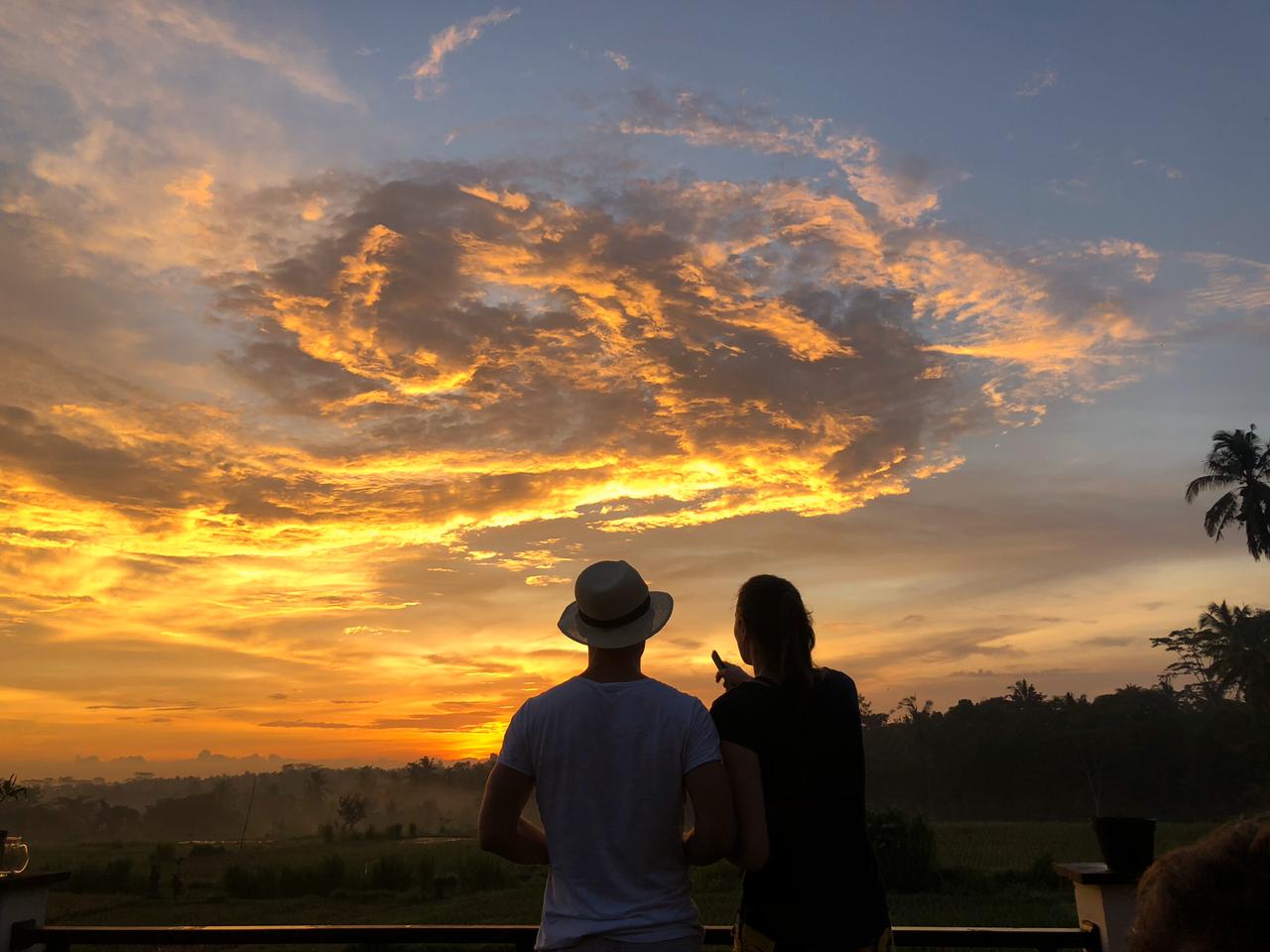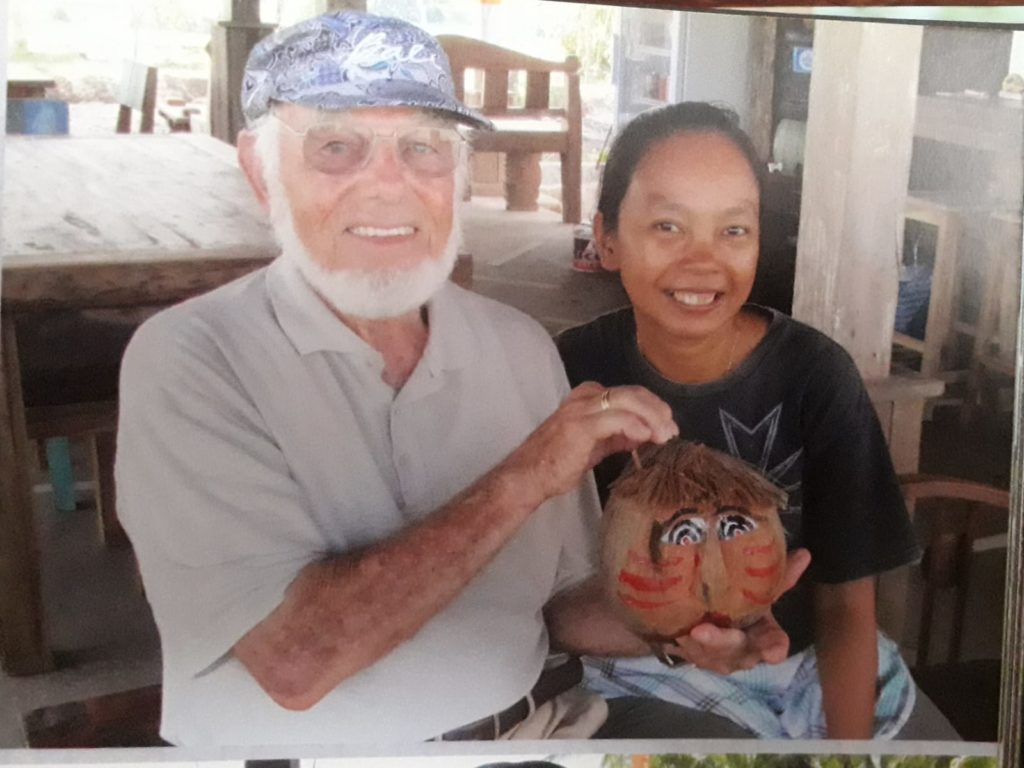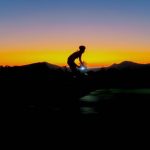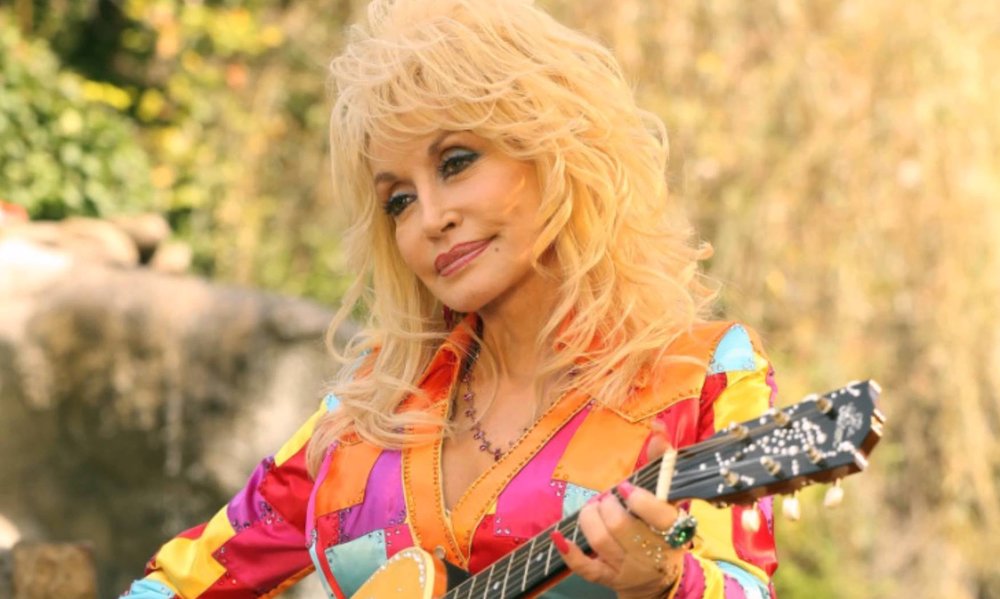
I wish someone told me you don’t have to be happy
In loving memory of Opa.
Whenever my turn rolls around in this blog series I never quite know what I am going to write, until I sit down and write it.
Two things which came to mind simultaneously were
- A recent trip to Bali, Indonesia
- The passing of my grandfather
They are linked in a way that is not obvious, even to some of my closest friends who don’t know that my family has close-but-loose ties with Indonesia. In a nutshell, my grandfather, mother, uncle and aunt were all born in the country and for many years I had wanted to visit part of it, even if only to have been on the same soil as where my mother was born.
(Technically speaking I didn’t quite achieve this as there over 17,000 islands that comprise the country but I have never been a stickler for the extreme details).
My grandfather, affectionately called “Opa” in the Dutch tradition by our family, was in short, a giant of a man who lived possibly one of the most interesting lives I think I have ever encountered. There is a short summary of his 95 years at the end of this article and I encourage anyone to read it next time they need some inspiration, noting that most people overestimate what they can do in say one year, but underestimate what they can do in five years.
Lets get back to the first item though – my trip to Bali. As always, travel is a privilege and I have been exceptionally fortunate in this area of my life. One of the interesting aspects of travel (whether it is in your home country or abroad) is how you travel. I used to do the checklist of tourist experiences, see the Eiffel Tower, take an average picture but not go to the top, then move on, ticking off all the “must dos” as if some sense of accomplishment would result from the exercise and I could appear worldly in conversations when the topic arose. (Side note, if you do travel, travel for yourself, not anyone else. And if you aren’t compelled to travel then don’t worry about it either.)
While my photography skills have remained largely unchanged over the years, I have noticed a gradual shift in how I travel. Rather than rushing around to see 10 cities in 5 days and 100 tourist spots, I more and more, enjoy the experience of going slowly through some places, spending time there getting to know the neighborhood and seeing how people live their lives. I don’t think you can immerse yourself fully in a place over the course of a week (for example) but it is significantly better in my opinion than spending less than 24 hours there. Travel brings introspection and perspective to life in a way that is easier to reflect on than being home in a normal routine. When back home, and considering recent events, I have realised that aiming to be happy seldom enters my thoughts.
Bali is a highly accessible area for tourists, with Australians frequently flying over to take advantage of the tropical setting, ample activities and favourable exchange rate. For this reason the area is geared up for tourists with the result being that you can fly in without having booked anything really and still be able to get around, find a place to stay, do what you want to do and not have to have planned things six months in advance.
There are other areas of the country which are more scenic, romantic, adventurous (insert whatever outcome you are looking for) but Bali is a good place to be. On a side note, if you are a “digital nomad” or can work remotely I would highly recommend you investigate spending some time there.

Being on holiday is understandably easier than being in your normal routine; everything is temporary, a foreign country’s problems aren’t your problems and if you take the time to silence your need to check emails, Whatsapp, Facebook, Instagram, Twitter, or the myriad of other platforms demanding your digital attention, you can sit back, watch people go about their daily lives and simply be present.
In doing this, you might realise that everyone is generally in the same boat of life, although they might in different oceans. That rather weak analogy aside, as the universe works, a recent media piece that came to my attention (from 2005) via Tim Ferris’ 5 bullet Friday. Entitled “This is water” by David Foster Wallace, it added some extra food for thought that none of us are the centre of anyone’s universe other than our own.
One other insight that travel brings is that most people in the world are simply too busy trying to survive rather than try and “be happy”. While I do advocate that mental health should be treated in a similar light to that of physical health, and contemplating the intricacies of how your mind works and affects your life should be periodically considered, I don’t think much was ever accomplished by someone trying to “just” be happy in life.
Rather, people who aim to make change by achieving goals that carry tangible outcomes for others, might experience happiness as a byproduct of helping others. But merely being happy never seems to be the catalyst for anyone who did anything worthwhile in my experience. As most emotions are fleeting, happiness is no different and I think we place too much weight as society pursuing this, as if when we are finally happy all will be right in the world. Much like the definition of success changes depending on who you ask to define it, I think the same applies when you consider what “being happy” entails.
Rather I aim to be curious, socially, intellectually, to understand how things work in the world, why things are the way they are, what you can do to improve it, for yourself, for others, for people you will never meet. Get out there and experience the world for yourself, be in the thick of the action rather than a passer by. Along the way I am sure you will experience a roller coaster of emotions, one of which, hopefully will be happiness but I really do not believe the goal of life is to be happy. This comic by the Oatmeal sums up my thoughts better than I can express them originally.
At the end of the day, when my time comes and I die, whether premature or precisely at the right time, I want to have lived a life that was full. Full of people, experiences, emotions, opportunities, challenges and ultimately, one like my Opa lived. His life revolved around helping others and he often attributed that defining characteristic to the longevity and satisfaction of his life.
Before I left for my trip he sent me a list of temples that over the course of his lifetime he had visited in Bali and found to be spiritually satisfying. When he was 92, Opa went back to Indonesia with my mother and aunt, visiting areas that I would also be exploring so I was looking forward to discussing the places with him when I got back to South Africa, as he would be staying with my family over Christmas.
Near the beginning of my trip I received the news that Opa had died. He passed away peacefully in his sleep, sound of mind (and arguably body) at the age of 95. While the news of his passing was immensely emotional (sad doesn’t quite seem to capture the situation properly) I was grateful that I could be in a country that had played such a key role in shaping his life.
In Ubud, there is a warung (local restaurant) that he had visited on his trip where an enterprising lady had set up a program to support the community. It involved purchasing a decorated coconut, inscribing a message on it and hanging it up on display. The proceeds go towards to the local workers in the rice fields and their community.

When my Opa was there, the program had just started so there were only a handful of coconuts hanging around the establishment. I figured it would be easy to find his but upon arrival I saw hundreds of coconuts hanging from the restaurant. The paint and messages on the older coconuts had faded over time and I decided to make peace with simply being there and thinking of Opa. Thankfully there was an spirited lady by the name of Meghan who decided that wasn’t actually good enough and managed to find Opa’s coconut from three years earlier. I need to make mention of the fact that my mother and aunt’s coconuts were nowhere to be found, not for lack of searching.
I am not prone to assigning emotions or meaning to situations where there are usually none, but these circumstances are often what you make of them. For me, being there at the warung, seeing that coconut and reflecting on his life, helped me come to terms with my grandfather’s passing.
Sometimes you discover more about someone in their death than you did in their life. While I knew a lot about Opa, there was more that I didn’t know. Reading a short “CV” of his life (below) and articles like this that emerged, reinforced in me that I do not need to be happy to live a life that I find fulfilling. That doesn’t mean I can just sit back and do nothing though. Life is too short to waste.
I would like to think that in doing things that matter, that result in a better life for one person or a million, is more important than being happy. Not losing sight of the fact that every day I have the opportunity to change my circumstances and of those around me. I only have to decide to do so.
If you need some inspiration for life, please continue reading below the coconut.

Dr Johann Teunis Mets
Born 30 October 1924 in Bandung, Java, Indonesia
He spent his childhood in Bandung, West Java, although his family moved to Den Haag in the Netherlands in 1928 to enable his father to study Chemical Engineering. In 1933 after completion of these studies they moved back to Bandung.
He attended the Christlelijke Lyceum in Bandung studying Latin and Greek as well the more usual high school subjects like Dutch, Maths, the Sciences, History, Geography etc.
A dedicated Boy Scout and embraced his love for hiking, adventure and community service. Aged 16, he and a friend went hiking a 130km route through the volcanic mountain ranges around Bandung. He became a Patrol Leader and subsequently the most senior Leader of the Wolves.
When WWII broke out, he was considered too young at 17 for the Voluntary Air Corps or Army so he joined a training camp with the Volunteer Training Corps. The invasion of Indonesia began in January 1942 and he was captured by the Japanese in August 1942. He spent time in solitary confinement and was moved to 3 different Japanese concentration camps in 3 years.
After various “jobs” as kitchen assistant, latrine cleaner and a nurse aid, he became a male nurse in the camp hospital working under a mentor who was his inspiration to become a doctor and where he further developed his life purpose of service to others under harsh conditions. All the Boy Scout training whether first aid, Morse code, problem solving, steadfastness, honesty and integrity was put into hard practice in a multitude of ways. He was elected leader of the Boys Barracks and was part of a small group who secretly and slowly managed to construct a radio in the camp and thus they were able to get news from the outside world. Discovery meant death but these fragments of developments in the war gave the men hope and kept them going. After the Japanese surrender in August 1945 the camp inmates were freed. Pappa found out where his mother and sisters were and then also managed to get word of his father who had been interned as a POW in Burma. He travelled back to the Netherlands from Jakarta on the old mail ship the “Johan Oldenbarneveldt” with a group of 18-20 year-olds and arrived in February 1946.
After completing an accelerated high school leaving curriculum Johann studied medicine at Leiden University and thereafter served in the Royal Netherlands Army Medical Corps and worked in hospitals in the Netherlands until 1955.
He met Thea Pleysier, a nurse, in the Zuidwal Ziekenhuis in Den Haag and they married on 22 July 1954. Two years later they moved to Indonesia for Johann to work for Shell International Medical Services. From 1956 to1960 he worked in Pladju, Badjubang (Sumatra) and Surabaya (Java) as medical doctor for the personnel and their families of Shell International at the oil refineries (as well as the general population in the surrounding villages). Being fluent in Behasa Indonesia was very valuable as well as his in- depth knowledge of the country he loved so much.
He was sent to study courses in Tropical Medicine in the Netherlands and burns treatment at the Birmingham Hospital Burn Unit in 1959 returning to Indonesia afterwards. In 1961 / 62 he was sent to England to St Mary’s Hospital in London for Special Surgical training. Following this he was sent to Pulau Bukom, Singapore for 1962 / 63 to run the Out-patient Clinic and hospital where he further developed his interest in occupational diseases and Occupational Health, which became the focus of his career. He continued working for Shell International with further deployments to Jakarta, Indonesia from 1964 -66 and then Curaçao, Netherlands West Indies until mid-1968.
Based on his proven track record of excellence both medically and managerially Pappa was offered the position of Chief Medical Officer of Shell International but this meant the family would have to live in the Netherlands. After careful consideration of everything this involved, he declined this prestigious position and in November 1968 the family immigrated to South Africa.
Johann settled his family in Port Elizabeth and after two years “internship” at the Provincial Hospital Port Elizabeth, he was appointed as Medical Officer at Volkswagen SA in Uitenhage in 1971. Here he established a comprehensive Industrial / Occupational Health Service and subsequently, through many years of meticulous research, wrote his thesis on Absenteeism in a Motorcar Manufacturing Plant for which he was awarded the degree of Doctor of Medicine by the University of Pretoria in 1979.
In addition to this doctoral degree he held further South African, Dutch, British and American qualifications in Occupational Medicine. In 1981 he and Thea moved to Cape Town so he could take up the post of Senior Lecturer in Occupational Health at the University of Cape Town in this field. He presented papers and lectures at national and international conferences, served on numerous professional committees, also as chairman and authored a multitude of articles and papers. He was one of the pioneers in South Africa in striving for Occupational Health / Industrial Medicine to be recognised as a specialty field of medicine and assisted in developing courses for nurses, health workers and medical students, as also for post-graduate studies. He contributed chapters for textbooks on Occupational Health and Medicine, and remained a passionate advocate for this specialty to be formally recognised after, much to his regret he had to retire at age 65 in 1989. He was still privately consulted for many years afterwards: retirement did not sit well with him.
Johann was a keen and talented sportsman in his day: he loved cricket and played that from his boyhood. He played tennis, hockey and squash and loved being outdoors in nature, continuing to hike well into his 80’s, and lately to go for less rigorous although still long walks with his dear “walking friends”.
He loved growing and nurturing his proteas and silver trees in his garden and delighted when a protea bush first flowered after many years of maturing.
Johann read avidly and widely and was knowledgeable on many, many subjects, whether that was medicine, science, history, exploration and travel, music, philosophy, religions, wine, world affairs and many more: his home is full of books and nearly every chair had at least three books next to it.
He (and Thea) were active in societies in Cape Town and greatly enjoyed the social and intellectual interaction these offered as well as serving on the committees as needed.
This whole description / thumbnail biography above does not scratch the surface of the nature and soul of this loving, generous, kind, dependable, compassionate, wise, clever, articulate, hardworking, dependable, dedicated, academically excellent man who was steadfast, loyal and honest in everything he said or did. He was not only a true, loving role model and mentor to his own children and grandchildren, but to numerous others with whom he interacted throughout his long life. Words cannot adequately describe him.






